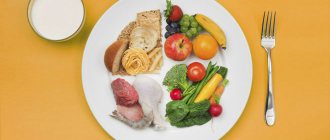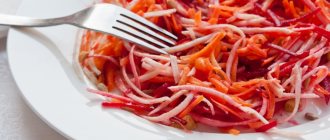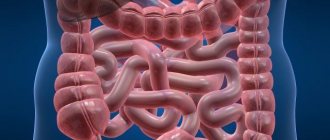Most older people have encountered the delicate problem of constipation in their lives and know about it firsthand. Many of them suffer from this regularly, taking laxatives, however, in most cases it is possible to get rid of this symptom or disease without medication. Nutrition plays the main and decisive role in the treatment of constipation in adults and the elderly.
Constipation affects about 30 - 50% of the working population in various countries of the world, and people over 60 suffer from this 5 times more often than young people. Moreover, in developed countries this problem is no less relevant, but quite the opposite. After all, it was the benefits of civilization that allowed people to move less, eat purified and processed food that contains a large number of calories and practically no fiber, which negatively affects people’s health.
The main causes of constipation in older people
Problems with bowel movements are quite common among older people. Such difficulties with stool can last from 1 to 3 days. It is safe to say that 50% of older people suffer from constipation. According to experts, such disorders are most often provoked by an incorrect lifestyle. For this reason, older people should pay due attention to their daily routine and carefully consider the menu.
Constipation is often caused by insufficient water intake. This leads to severe hardening of the stool. In this case, the process of defecation becomes not only painful, but also almost impossible.
We must not forget about medications that older people take in large quantities. Often, drug treatment causes constipation. From this point of view, painkillers, diuretics and medications that relieve spasms are considered dangerous.
In addition, it makes sense to think about the performance of the body. Over the years, it has steadily fallen, and difficulties with bowel movements in older people in most cases arise against this background. Constipation can also be a concomitant factor for the following diseases:
- mental;
- disturbances in the functioning of the endocrine system;
- diabetes mellitus;
- atherosclerosis;
- constant stress and nervous tension.
In addition to all of the above, it is necessary to remember about the characteristics of the body of an elderly person. Over the years, all internal organs function intermittently, which causes deterioration of intestinal motility:
- The sensitivity of receptors located in the rectum decreases. This negatively affects the reflex that regulates the urge to defecate.
- The sensitivity of the rectum decreases, which leads to weakening of the muscles. This is often why older people sometimes fail to feel the urge to have a bowel movement in a timely manner.
- Low physical activity negatively affects the functioning of the intestines, which lose tone and muscle strength. Therefore, even in a relatively short period of time, the rectum can become filled with feces. Regardless of age, physical activity becomes one of the most important components of the treatment of constipation.
- Due to the progression of severe diseases in older people, blood vessels located in the abdominal cavity and pelvic organs may begin to be affected.
- If the intestines are not supplied with blood flow in the required quantity, its functional activity changes significantly. This, in turn, increases the likelihood of constipation.
If constipation occurs frequently, a concomitant disease develops - hemorrhoids. These two problems happen to every patient if he does not begin to treat the symptoms that appear in a timely manner. With any changes in the functioning of the intestinal tract organs, disturbances in bowel movements appear, and this over time causes the formation of hemorrhoids in older people. To prevent constipation from becoming chronic, it is necessary to start treatment on time and try to adhere to a certain menu.
We recommend
“Swelling in the elderly: causes, treatment, medications” Read more
Treatment of constipation in older people
The complex of therapeutic measures aimed at combating constipation includes not only measures that eliminate this pathology, but also work with factors that provoke this disease. To treat constipation you need:
- Systematically take medications prescribed by your doctor.
- Perform therapeutic exercises.
- Use recipes and methods of traditional medicine.
- Follow a diet.
Therapy for constipation is impossible without following a special diet for constipation in older people and a menu. Often it is the right food that helps an elderly person cope with this disease.
In addition to the appropriate menu, an elderly person should also remember about physical activity. It is important to take walks, walk in the fresh air, and do simple gymnastic exercises in the morning. Unfortunately, physical activity is not available to those who are bedridden. Therefore, special attention should be paid to nutrition for constipation in bedridden elderly people.
Abdominal massage also helps well, which can be done at any free time. If necessary, the use of traditional medicine methods is allowed. For example, decoctions and tinctures of medicinal herbs are of considerable benefit and effectiveness. In order to prevent complications, it makes sense for older people to follow all the above recommendations in combination, otherwise the desired effect will not be achieved.
When following a diet for constipation in older people and adhering to a special menu, you must also remember to consume enough water. You should drink about two liters of clean water per day. This volume of fluid should become the norm not only for the period of following the diet, but also in the future. Due to this, it will be possible to prevent the recurrence of constipation.
We recommend
“Gymnastics for the elderly: the best exercises for various diseases” Read more
The need to follow a diet
Following a diet helps to get rid of not only constipation, but also other symptoms associated with this condition (bloating and abdominal pain). By eliminating prohibited foods, the patient normalizes the functioning of the gastrointestinal tract as a whole and prevents the development of diseases that inevitably contribute to constipation (gastritis, cholecystitis).
In addition, proper nutrition promotes the growth and activity of normal microflora in the intestines and prevents the development of intoxication syndrome. By following the treatment table, the body is vitaminized, weight is reduced, and the condition of hair and skin improves.
Nutrition for elderly people with constipation: allowed and prohibited foods
When starting to fight constipation, older people need to take into account certain recommendations:
- You should give preference to boiled, stewed and steamed dishes.
- It is necessary to consume vegetables and fruits raw.
- There is no need to chop the food too much.
- Meals should be fractional: small portions approximately 6-7 times a day.
- Food should not be very hot. The most suitable temperature for ready-to-eat food should be no higher than 55 degrees.
Foods that are good for constipation in older adults include:
- flax seeds, bran bread and anything that contains fiber;
- honey;
- seafood;
- greens, including parsley, dill, celery;
- fats: butter, vegetable oil (olive, sunflower);
- cereals: buckwheat, millet, oatmeal, etc.;
- dairy products, including kefir, yogurt, fermented baked milk, yoghurts;
- all kinds of vegetable and fruit juices;
- rosehip decoction;
- herbal decoctions and infusions;
- various fruits and berries: apricot, plum, gooseberry, strawberry, raspberry, black currant, banana, peaches, melon;
- dried fruits, including prunes, figs, dried apricots, raisins;
- vegetables, among which it is worth highlighting carrots, beets, ginger, zucchini, cucumbers, pumpkin, sauerkraut;
- soft-boiled eggs.
Before you start developing a sample menu for constipation in older people, it is recommended to consult a doctor. Only in this way will it become clear which foods need to be removed from the diet, which can cause allergies and cause certain harm to the body.
Elderly people should not add the following products to their menu:
- legumes;
- fresh cabbage;
- white bread, pastries and sweets;
- types of cereals such as rice and semolina;
- fatty meat and fatty meat broths;
- red fish;
- canned products;
- smoked meats;
- dishes containing spices, spices in large quantities;
- mushrooms;
- garlic, green and onions;
- some fruits including pear, pomegranate and blueberry;
- horseradish;
- mayonnaise.
In addition, if older people suffer from constipation, they should not drink a number of drinks. So, you will have to exclude from the menu:
- cocoa;
- coffee;
- strong tea;
- jelly;
- alcoholic drinks;
- apple and grape juice.
We recommend
“Why blood pressure drops in older people: causes and treatment” Read more
Basics of proper nutrition for constipation
Changing your approach to eating will help eliminate such unpleasant symptoms of constipation. Elderly people are recommended:
- Try to include plenty of fresh fruits and vegetables in your diet every day.
- Eat foods high in fiber. You should eat small meals every 2-3 hours. This way, food can not only be digested faster, but also absorbed.
- Healthy foods to add to your diet include prunes, raisins, rye bread and whole grain cereals.
- Do not forget about the importance of maintaining a drinking regime. It is advisable that a person drinks 1.5–2 liters of purified water during the day.
Herbal medicine for constipation
If we talk about medicinal herbs, they have a number of features that are usually highlighted by experienced doctors.
For example, taking such medications not only becomes a very effective prevention of constipation, but also does not have any side effects, unlike traditional drug treatment. This feature is explained by the fact that herbs contain biologically active substances in their natural form. Drinking herbal infusions is much more effective than taking medications containing herbs. Most often, herbal remedies that have a laxative effect are used. These include decoctions and infusions of buckthorn bark and berries, nettles, and yarrow herbs. Chamomile is very effective in treating constipation and bloating.
In addition to the already mentioned plants that have a laxative effect on the intestines, it is necessary to mention such herbs as:
- hay hay;
- Tangut rhubarb root;
- agave;
- field steelhead.
Very effective, if we talk about nutrition for constipation in older people after 80, is the use of a special laxative paste, which includes dried apricots, prunes, raisins, honey and lemon juice. The recipe for this product is very simple. You will need 100 grams of each ingredient. All components are mixed in a blender, after which the paste is ready for use. You need to eat 1 tablespoon daily. This pasta is quite suitable as a snack, and it can be added to the menu of older people.
A mixture made from kefir (or yogurt) and buckwheat flour has a similar laxative effect for constipation. For 1 glass of fermented milk drink you will need 1 tablespoon of flour. It is important to prepare this mixture in the evening and let it brew, and in the morning you should drink it on an empty stomach.
We recommend
“Vitamins for elderly people over 70: which ones are needed first” Read more
Emergency remedies for constipation
Glycerin suppositories can help relieve constipation.
It is still advisable to treat constipation with proper nutrition and exercise, but if constipation has already lasted about 3-4 days, emergency remedies are required that will help quickly overcome constipation with minimal stress on the pelvic vessels.
Prolonged constipation causes toxic poisoning of the body and worsens the condition. However, laxatives are called emergency drugs because it is advisable to use them only in extreme cases, but not all the time. Emergency remedies:
- Glycerin suppositories. Suppositories quickly, effectively and gently help get rid of constipation. One suppository is inserted into the anus. After 5 minutes you can already go to the toilet. Glycerin quickly dissolves and softens stool, and also acts as a lubricant. Candles are suitable for anal fissure. They can also be used during pregnancy. However, constant use of suppositories leads to a weakening of peristalsis; the effect may be the opposite.
- Microlax. These are microenemas that allow you to quickly cope with constipation. They are recommended for pregnant women and infants. Unlike water, the drug contained in microenemas does not wash away beneficial microflora. It gently envelops the intestinal walls, softens stool, and promotes its movement.
- Phytolax. These are chewable lozenges based on herbal ingredients. Fitolax is recommended for use in a course, but it contains senna herb, which enhances intestinal motility. Intestinal emptying occurs 8-12 hours after taking the drug. The drug should not be taken by pregnant women, since hay grass causes cramps and can cause miscarriage.
- Cleansing enema with water. An old and proven way to combat constipation. For an enema, it is recommended to use water at room temperature. Colon cleansing occurs almost immediately and is quite painless. However, frequent enemas disrupt the intestinal microflora. If constipation is severe, an enema may only be partially effective.
Sample menu for a week for constipation in the elderly
If we talk about the variety of menus for older people suffering from constipation, then in most cases experts recommend table No. 3. In this case, it is allowed to add certain dishes based on each specific case. It is important that they do not contain any products prohibited for consumption.
- Monday
Breakfast: buckwheat porridge with sunflower oil, weakly brewed tea with milk.
Second breakfast: sandwich with low-calorie cheese and fresh tomato.
Lunch: chicken breast soup, stewed vegetables, compote made from dried fruits.
Afternoon snack: milk and crackers.
Dinner: buckwheat porridge with steamed chicken cutlets, fresh grated carrot salad with vegetable oil.
- Tuesday
Breakfast: oatmeal, boiled in water with the addition of dried apricots or raisins, wholemeal bread.
Second breakfast: low-fat cottage cheese or fresh kefir.
Lunch: chicken meatball and beet soup, mashed potatoes, vinaigrette with vegetable oil.
Afternoon snack: steamed raisins or dried apricots.
Dinner: two small cabbage rolls.
- Wednesday
Breakfast: fruit yogurt.
Snack: one medium-sized apple or several apricots.
Lunch: chicken soup with tomato, stewed potatoes with chicken breast.
Afternoon snack: any fruit (apricots, apples or plums).
Dinner: turkey, boiled or stewed, fresh vegetable salad.
- Thursday
Breakfast: porridge cooked in water with the addition of raisins.
Snack: banana and kefir.
Lunch: mashed potato soup with chicken, seafood salad.
Afternoon snack: orange juice.
Dinner: low-calorie boiled fish, vegetables, stewed or steamed.
- Friday
Breakfast: omelet, tea with milk, cookies.
Snack: a small amount of dried apricots and prunes.
Lunch: low-calorie soup in fish broth with potatoes, pasta with boiled chicken breast.
Afternoon snack: kefir and a bun made from soft dough.
Dinner: boiled veal, boiled beet salad with vegetable oil.
- Saturday
Breakfast: soft-boiled chicken egg, a sandwich with boiled chicken, lettuce and a slice of tomato, weakly brewed tea with milk.
Snack: steamed dried apricots.
Lunch: boiled beef and salad of fresh vegetables, pureed soup of cauliflower, carrots, potatoes and herbs.
Afternoon snack: low-calorie cottage cheese and a glass of fresh kefir.
Dinner: steamed chicken cutlets, vinaigrette, baked apple.
- Sunday
Breakfast: buckwheat porridge with vegetable oil, milk.
Second breakfast: low-calorie cottage cheese with dried apricots or raisins.
Lunch: beetroot and savoy cabbage borscht, pasta with chicken.
Afternoon snack: fresh kefir and a bun made from savory dough.
Dinner: fresh vegetable salad, boiled hake.
The menu we considered is a possible dietary option, of which a huge number have been developed today. When thinking over the list of dishes for the week, take into account the general condition of the elderly person and the characteristics of the course of the disease.
We recommend
“The main problems of older people and ways to solve them” Read more
Products recommended for consumption
Dietary food for intestinal stagnation in older people should contain a large amount of greens, vegetables, fruits, and berries. They will saturate the body with vitamins and provide sufficient dietary fiber. These can be grated salads, freshly squeezed juices, whipped smoothies. Vegetables can also be boiled or stewed, fruits dried or in compote. Required for daily intake are porridge with water (buckwheat, pearl barley), light soups, borscht, rye, bran bread, fermented milk products (low-fat yogurt, kefir, fermented baked milk, yogurt), lean boiled fish, dried fruits, honey.







